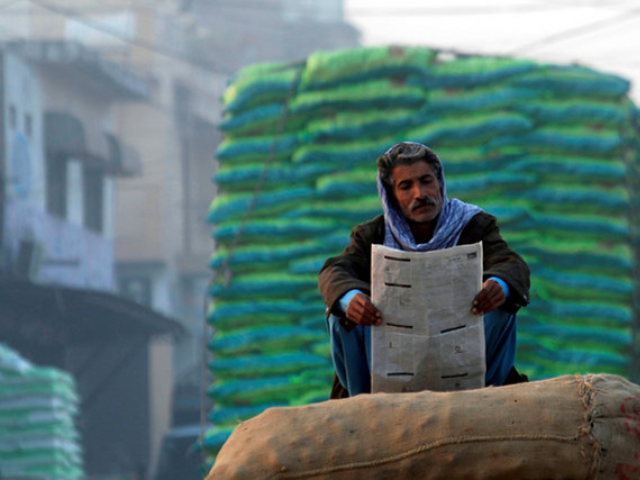Cracks appear in economy — but they can be plugged
Govt has taken some needful measures to stem rising tide of trade deficit

PHOTO: REUTERS
Since the economy is constrained by balance of payments (BOP) and vulnerable to BOP crisis on frequent intervals, successive governments could not address its structural weaknesses. The economy has become uncompetitive over time and successive governments have paid attention to window dressing. Now the current debate is whether to let the currency depreciate or not?
The camp in favour is arguing that the rupee is overvalued by 10-20% and its adjustment is the need of hour. It is a firm believer of market mechanism and thinks that markets are efficient in allocating scarce resources among alternative uses. It applies that logic to international transactions of goods and services and management of capital flows.
When no one, including the finance minister, is willing to fix the economy
The camp is further divided into two groups. One group argues for orderly depreciation of the rupee. Proponents argue that competitive depreciation will increase exports and reduce imports and this adjustment should be done in a slow and phased manner.
They also state that the reduction in trade deficit can be achieved through this orderly adjustment.
This has been tried successfully in the early 1980s in Pakistan. This is a simplistic argument since the camp has ignored international circumstances of the 1980s and 2017. During the 1980s, the government was getting geo-strategic rents. Now the possibility of these rents is remote.
There is a group on the other extreme. Proponents of this group argue that depreciation is indispensable at all cost. The government can just delay this happening but cannot avoid it.
The circumstances ultimately force the government to swiftly adjust the value of the rupee. The forced depreciation will enable the economic system to adjust. This adjustment should be done as early as possible to save the system from further damage.
Today’s circumstances are no parallel to 2008 as that was the time of global financial crisis which created negative externalities for a country like Pakistan.
Reserves’ drawdown
As the State Bank of Pakistan (SBP) has been stabilising the rupee vis-a-vis dollar through interventions in the inter-bank market, it has to draw down on foreign exchange reserves to fulfil the much-needed capital requirements.
After the Extended Fund Facility (EFF) of the IMF, the reserves are on the downhill due to burgeoning trade deficit. This deficit arises partly due to slight revival of the economy and partly due to the China-Pakistan Economic Corridor (CPEC)-related imports which may bring dividends in future.
The government along with the SBP intends to maintain official foreign exchange reserves which can cover up to three months of imports. This coverage is significant to maintain a reasonable credit rating since the government has to borrow from the international bond market.
The government took some needful administrative measures to stem the rising tide of trade deficit. In January 2017, it introduced an export package to boost exports with some conditions and now it has relaxed those conditions. On the import front, the government slapped duties and raised the tariff in the 2017-18 budget. It increased those duties in October 2017.
Political turmoil may harm national economy
Critics argue that import-related administrative measures will promote under-invoicing of imports and even promote smuggling. Why the critics are against those measures? The answer is that these measures are intervening in the operations of markets. In a nutshell, the markets don’t operate efficiently in developing economies. The government has to intervene in those markets to obtain social advantages. It has taken administrative measures both on the export and import fronts to arrest the trade deficit. Such measures may yield results depending on the efficacy of the bureaucracy.
The writer is an Assistant Professor of Economics at SDSB, Lahore University of Management Sciences (LUMS)
Published in The Express Tribune, November 6th, 2017.
Like Business on Facebook, follow @TribuneBiz on Twitter to stay informed and join in the conversation.



















COMMENTS
Comments are moderated and generally will be posted if they are on-topic and not abusive.
For more information, please see our Comments FAQ